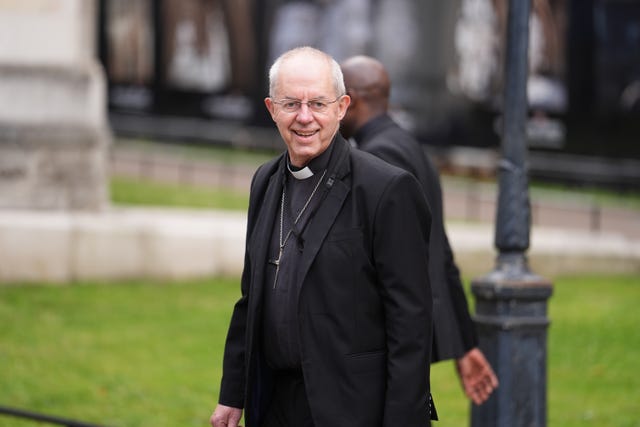Demands for the Archbishop of Canterbury’s resignation continue to grow as the Prime Minister said victims of a Church of England-linked abuser had been “failed very, very badly”.
A petition, started by three members of the General Synod – the church’s parliament, calling for Justin Welby to quit has received more than 11,500 signatures.
Mr Welby has apologised after the independent Makin Review concluded that barrister John Smyth, who is thought to have been the most prolific abuser associated with the church, might have been brought to justice had the archbishop formally alerted authorities in 2013.

Sir Keir Starmer would not comment directly on Mr Welby’s position, saying it was a “matter, in the end, for the church”, but he made clear that Smyth’s victims had been let down.
He said: “Let me be clear: of what I know of the allegations, they are clearly horrific in relation to this particular case, both in their scale and their content.
“My thoughts, as they are in all of these issues, are with the victims here who have obviously been failed very, very badly.”
Smyth, who was a lay reader and led Christian summer camps, died aged 75 in Cape Town in 2018 while under investigation by Hampshire Police, and was “never brought to justice for the abuse”, the review published last week said.
Mr Welby has acknowledged the review found that, after Smyth’s abuse was subject to wider exposure in 2013, he had “personally failed to ensure” it was “energetically investigated”.
But he has maintained he will not resign, with a Lambeth Palace spokesperson saying the archbishop “hopes the Makin Review supports the ongoing work of building a safer church here and around the world”.
Andrew Morse, a victim of Smyth’s whom he first met while a pupil at Winchester College, Hampshire, described him as a predator.
He told BBC Radio Four’s Today programme that Mr Welby’s admission that he had not done enough since 2013 “is enough in my mind to confirm that Justin Welby along with countless other Anglican church members were part of a cover-up about the abuse”.

He added: “I think he should resign; I think the church is incredibly stringent with its rules for everyday vicars and those lower down the scale about what to do when abuse is reported to you.
“The archbishop has himself admitted that he failed in 2013 and I think for that reason, although on a personal level I know how difficult it is not to hold onto secrets and particularly secrets in which you yourself come out maybe with a degree of shame, I believe that now is an opportunity for him to resign.
“I say opportunity in the sense that this would be an opportunity for him to stand with the victims of the Smyth abuse and all victims that have not been treated properly by the Church of England in their own abuse cases.”
The latest call follows others from abuse victims, the Synod petitioners and a bishop who said Mr Welby’s position has become “untenable”.
The Bishop of Newcastle, Helen-Ann Hartley, told the BBC the church is “in danger of losing complete credibility” in safeguarding and Mr Welby should go.
Mr Welby knew Smyth because of his attendance at Iwerne Christian camps in the 1970s, but the review said there was no evidence that he had “maintained any significant contact” with the barrister in later years.
The archbishop said he had “no idea or suspicion of this abuse” before 2013.
Over five decades between the 1970s until his death, Smyth is said to have subjected as many as 130 boys and young men in the UK and Africa to traumatic physical, sexual, psychological and spiritual attacks, permanently marking their lives.
The report said Smyth “could and should have been formally reported to the police in the UK, and to authorities in South Africa (church authorities and potentially the police) by church officers, including a diocesan bishop and Justin Welby in 2013″.
When the Makin report was published, Mr Welby admitted he had considered resigning but decided not to after taking advice from “senior colleagues”.




Comments: Our rules
We want our comments to be a lively and valuable part of our community - a place where readers can debate and engage with the most important local issues. The ability to comment on our stories is a privilege, not a right, however, and that privilege may be withdrawn if it is abused or misused.
Please report any comments that break our rules.
Read the rules hereLast Updated:
Report this comment Cancel